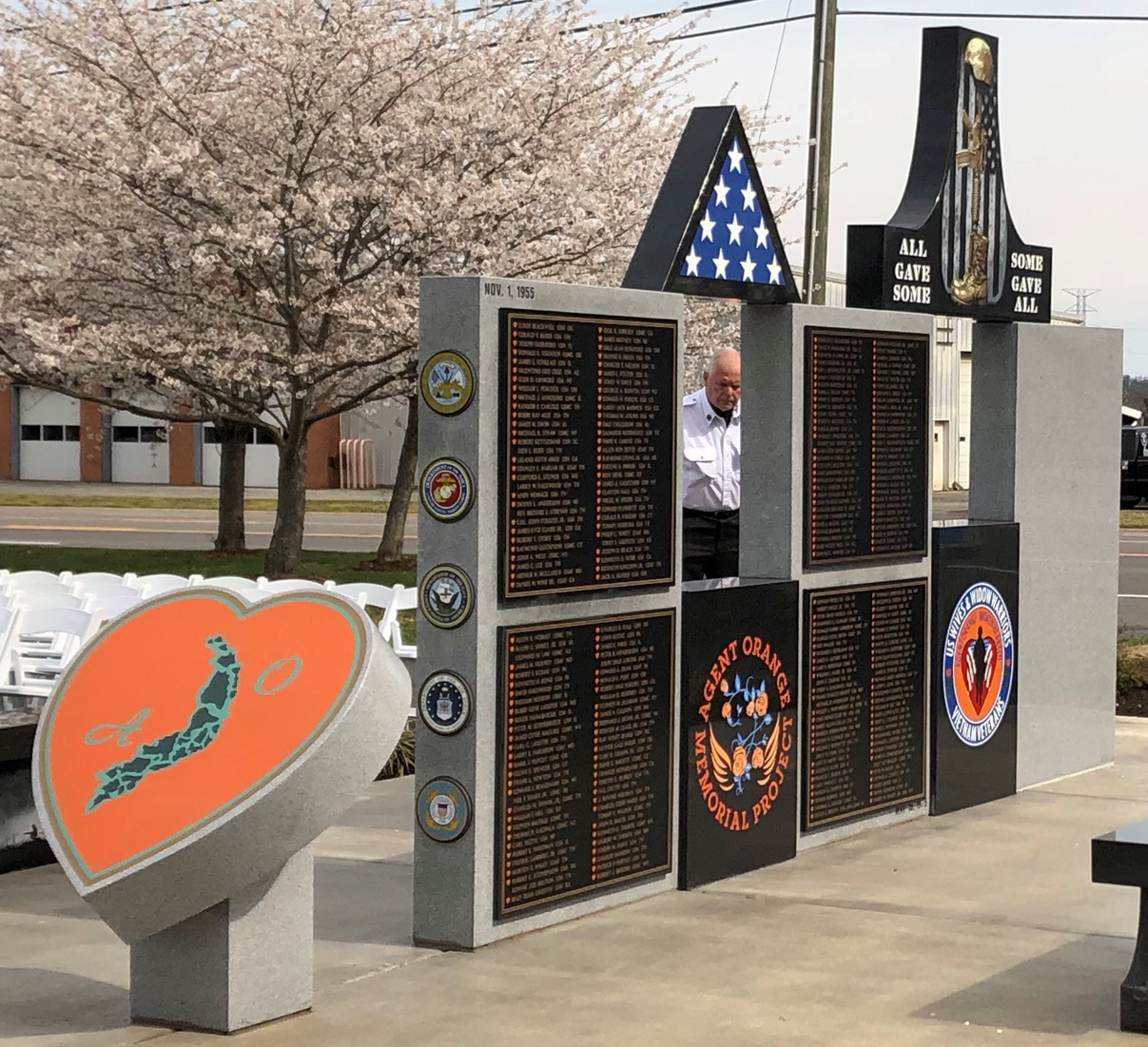Some Gave All
 The Agent Orange Memorial in Springfield, Tennessee, USA. For more information, please visit them on Facebook
The Agent Orange Memorial in Springfield, Tennessee, USA. For more information, please visit them on Facebook
As most of us know, Memorial Day in the United States is a day set aside to acknowledge and remember our servicemen and women who have lost their lives while serving in the U.S. military. This is an important and appropriate tradition. But is it enough?
There is a phrase I have seen many times posted online and even on T-shirts that states, “The Vietnam War killed me. I just haven’t died yet.” This sentiment refers to the long-term and far-reaching effects of Agent Orange exposure.
Agent Orange was a chemical herbicide used extensively by the U.S. military during the war in Vietnam. Its purpose was to destroy enemy food crops as well as the dense jungle the Viet Cong used so effectively to ambush Western troops. Unfortunately, there were unintended consequences.
The manufacturing process associated with the making of Agent Orange, a combination of two different herbicides, also produced dioxin. Dioxin is considered the most toxic man-made compound ever created. It has no commercial value and is not manufactured intentionally, but it was present in Agent Orange.
Millions of gallons of herbicides were sprayed across the South Vietnam landscape over more than two decades of war. Agent Orange wasn’t the only one. There was also Agent Green, Agent Pink, Agent Purple, and Agent White. These so-called rainbow chemicals took their names from the colored stripe on the black barrels in which they were shipped. Agent Orange was the one most widely used. It was also the most toxic.
The initial consequences of exposure were rapid. Within 24 hours of being sprayed, leaves would begin to wither and die. Birds and other small animals would also quickly succumb to the chemical’s toxic effects. Eventually whole forests would be destroyed, wildlife killed, and the land ruined for farming. Yet, somehow, it was thought that Agent Orange had no serious effects on humans.
We know better now.
We now know that the dioxin in Agent Orange affects the human immune system, the endocrine system, and the reproductive tract. Cancer, a wide array of birth defects, pregnancy failures, diabetes, and many other conditions have been linked to dioxin exposure. We also now know some of its effects can be transmitted across generations affecting the children and grandchildren of those who were initially exposed. Another unintended consequence. This is what we know today. What have we not yet learned?
Memorial Day is a day to remember and honor those who have fallen while in service to our country. But I ask, should this be expanded to include those who died because of their service even though their death may have been years later?
Sadly, the example of Agent Orange is only that—one example of how our military members may be lost because of their service long after they have been discharged. We now know that the burn pits so often used to destroy military waste produced dioxin and many other chemicals that together created a highly toxic cloud that was eventually linked to the increased risk of cancer and numerous other diseases in our veterans. To my knowledge, we have not yet demonstrated that the children of military personnel with burn pit exposures may suffer the same fate as the children of Agent Orange-exposed Vietnam veterans—but has the question even been asked?
Finally, post-traumatic stress disorder (PTSD) is common among America’s veterans, but these invisible scars are often overlooked. Of course, the families of these veterans see and feel the long-term effects of war. Although PTSD may not cause disease the way Agent Orange or the burn pits have, the emotional toll can be just as great. When PTSD leads to death by a veteran’s own hand, is the loss any less great?
This Memorial Day as we remember the many members of the U.S. Army, Navy, Air Force, Marines, and Coast Guard who have died during their service to our country, I will also take a moment to remember those who came home but ultimately died as an unintended consequence of their service. These men and women have given us their all and deserve to be honored for their sacrifice.
Quick Links
| Pages | Other Pages | |
|---|---|---|
| Home | The Agent Orange Trilogy | |
| The RAM Blogs | Edge of Justice | |
| Books | Help | |
| Media | ||
| About Me | ||